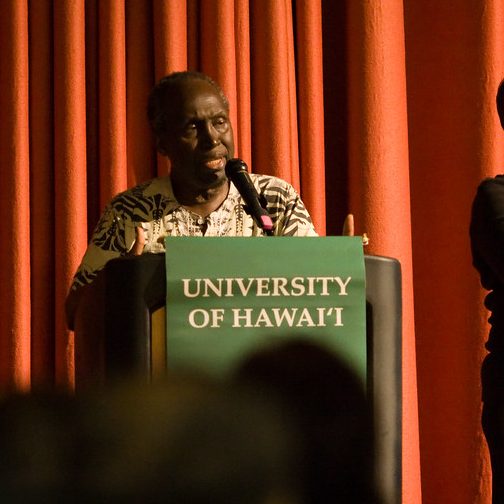The reading habits of Ngugi wa Thiong’o
In the wake of yet another Ngugi wa Thiong’o snub by the Nobel Committee, we are at a loss. Perhaps a reconsideration of the author’s body of work can provide insight.

Image credit Kanaka Rastamon via Flickr CC.
In February 2019, the Kenyan cultural studies scholar Joyce Nyairo moderated a public discussion between celebrated novelist Ngugi wa Thiong’o and his son, Mukoma, also a writer. In a write up of the event, a few days later, Nyairo said the event confirmed something for her: “… what I have always suspected about Ngugi: Outside his own children, he doesn’t read anyone else.” Hers was a suspicion I share. To me the real surprise was that he still reads at all.
Ngugi finished what he considers his magnum opus, Wizard of the Crow on 10 March 2002 as he announces in one of his nonfiction works. Since then he has published in two forms of writing that require the least critical engagement with other writers: memoirs and lecturers. A great memoir or lecture is easier to write than, say, a great novel or play.
In an interview from 2008 Ngugi asserts that “if you ever arrive at the complete truth, you will have nothing else to live for. Except maybe living that truth over and over again.” Could it be then that Ngugi arrived at his truth years ago unwittingly, and has since then been repeating it, trying unsuccessfully to patch up something old and torn?



















